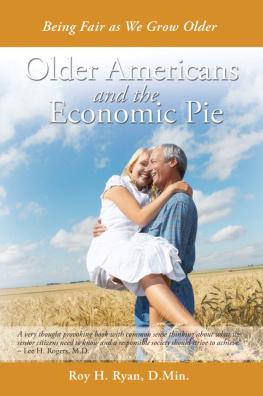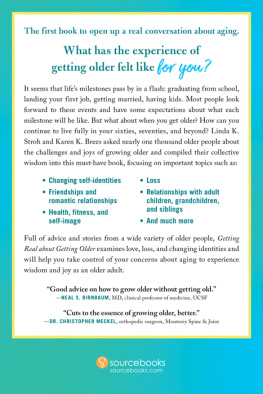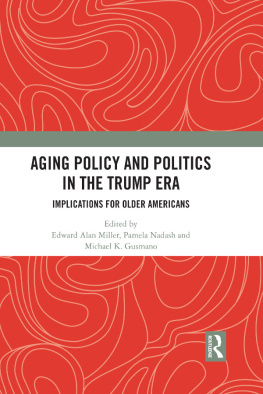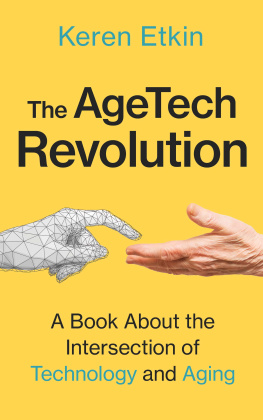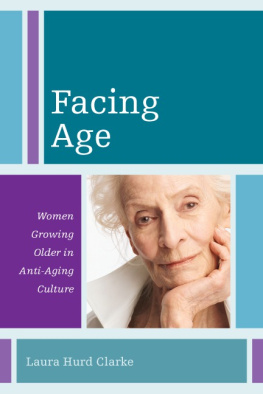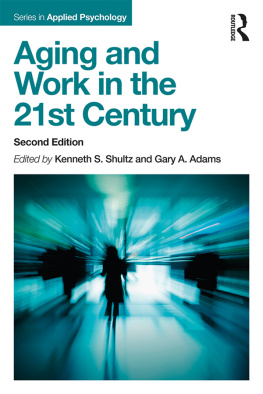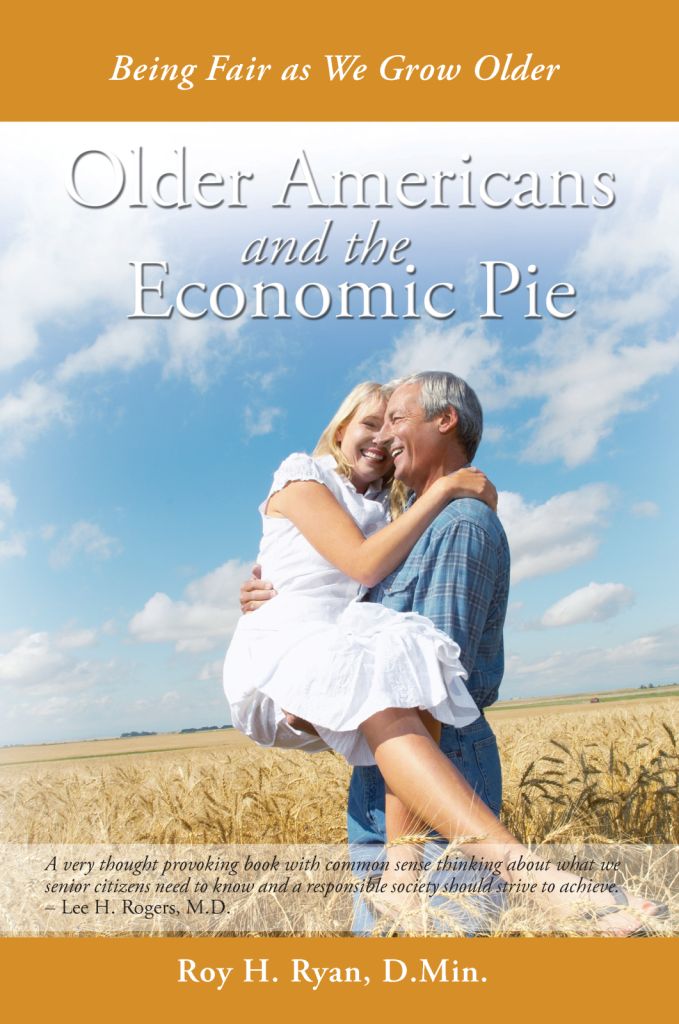Older Americans and the Economic Pie
 | CrossLink Publishing
www.crosslinkpublishing.com |
Copyright, 2013 Roy H. Ryan
All rights reserved. No part of this book may be reproduced in any form, except for brief quotations in reviews, without the written permission of the author.
Printed in the United States of America. All rights reserved under International Copyright Law.
ISBN 978-1-936746-47-7
The Scripture quotations contained herein are from the Revised Standard Version of the Bible, copyright 1946, 1952, 1971 by the Division of Christian Education of the National Council of Churches of Christ in the USA. Used by permission.
A BOUT T HE A UTHOR
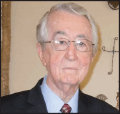
Roy H. Ryan, a retired United Methodist Minister/Educator, is a native of Mississippi. He served pastorates in Mississippi, before moving to Dallas, Texas where he served as a pastor while attending Perkins School of Theology of SMU. In 1968, he moved to Nashville, TN as an Adult Education Specialist with The General Board of Discipleship of The United Methodist Church. He served 22 years in that role. He also served as the interim Director of Older Adult Ministries.
Roy is the author/editor of nine books on Christian education. His articles have appeared in numerous denominational and professional publications. For 22 years he contributed regularly to the development and writing of curriculum resources through The United Methodist Publishing House. He has taught courses at SMU, Scarritt College and Itawamba Community College. He is presently a free-lance writer and teacher.
The author holds a B.A. degree in Sociology/Anthropology from Millsaps College. In addition, he earned an M. Div (Master of Divinity) from Emory Universitys Candler School of Theology, the S.T.M (Master of Sacred Theology) from Southern Methodist Universitys Perkins School of Theology, and a professional doctorate, D. Min (Doctor of Ministry) from The Divinity School of Vanderbilt University. The four areas of study for his four academic and professional degrees in addition to Sociology/Anthropology; Biblical and Theological Studies; Adult Christian Education and Theological Ethics.
He lives with his wife Doris, a retired teacher, in The Traceway Retirement Community, in Tupelo, MS. He is involved in church, community and political affairs.
T ABLE OF C ONTENTS
P ART I - G ETTING O UR B EARINGS
Foreword
M y wife Doris and I live comfortably in a retirement community I helped establish as a young minister in the 1960s. We both had professional careers, she as a teacher/educator and I as a minister/educator. Though these are not high-salaried professions, we were able to see our three daughters educated without debts hanging over their heads or ours, and to achieve an adequate income for our retirement through pensions, Social Security and savings. We have lived the American Dream in many respects, a dream that may be denied future generations of retirees.
Earned Benefits and Entitlement programs are facing an uncertain future because of the increasing numbers of retirees and the rising costs associated with these programs. There are no easy answers to fixing Social Security, Medicare, Veterans Benefits and Medicaid. The ethics and politics involved in these programs confront older and younger Americans and the politicians, who must answer to a larger and bolder constituency of aging persons, with some difficult choices. Can we be candid, cooperative and non-partisan in developing public policies that will move us toward workable solutions for the remainder of the 21st century?
Are Older Americans getting too much of the economic pie? This is a fairness kind of question that needs to be faced with serious intent. Fairness and economic justice are basic to our American heritage. Whatever solutions are proposed for the funding/benefits of these programs must deal with fairness as justice.
Maybe we can grow the economic pie. However, in our global economy, that is likely to be more and more difficult. We have faced hard decisions before. How will we respond to this biggie?
Two early experiences in my career set the tone for my concern for older persons. First, I was a delegate to the First White House Conference on Aging, January, 1961. Medicare legislation had just been introduced in the Congress but would not become law until 1965. I could hardly have imagined, as a young adult, what Medicare would mean to me as a Senior Adult! This landmark legislation has served retirees well since that time. It is incumbent upon our national leaders to ensure that Medicare will survive for future generations of aging Americans
The second experience also occurred in the early 1960s. I was involved in the visioning and development process for a retirement facility sponsored by my denomination. As indicated above, my wife and I are now happy residents of that community where we can access all levels of long-term care we may need. We now live in a cottage and enjoy independent living. We anticipate a time when one or both of us may need Assisted Living or Skilled Nursing care in other facilities on our campus.
Just before I retired, I attended a seminar sponsored by Florida State University on The Ethics of Aging Policy. Various ideas and insights reflected in this book had their grounding in that experience and in my long-time interest and study in the field of Gerontology.
Go with me now as we explore some ethical and political aspects of aging in the USA. There are likely to be some bumps in the road ahead. However, we retirees are a tough bunch and we have faced difficult times in our long journey. Surely with the combined wisdom of older and younger citizens and our political leaders, we can preserve and strengthen these important programs. So Let us then, be up and doing, with a heart for any fate: still achieving, still pursuing, learn to labor and to wait. (H. W. Longfellow, The Psalm of Life)
Introduction
The test of a people is how it behaves toward the old. This statement was given by Rabbi Abraham Heschel at The White House Conference on Aging, 1971. This is a truism for our Judeo-Christian heritage and for our sense of community as Americans, religious or non-religious.
There are at least three dimensions to that heritage: (1) The sacredness of life; (2) The worth of all persons, not based on productivity or age, and (3) Older persons have a prominent place in the family and community.
There are certainly more criteria that could be used to measure a responsible society, but concern for the well-being of older persons is high on that list. This characteristic of the Judeo-Christian tradition is stated as the fourth commandment, Honor your father and mother, that your days may be long in the land the Lord your God gives you (Exodus 20:12). Note that this commandment carries a promise.
This relationship of parent-child is modeled after the relationship of God with Israel. Note that the commandment says honor. One Old Testament scholar (Walter Harrelson, Ph. D), has suggested that we are not commanded to love our parents, but to honor them. Not all parents are lovable and not all older persons are lovable. However, lovable or not, we are called as family and society to give them a proper place of honor in our communities.
The present older adult population may be thought of as three somewhat distinct populations. These are not hard and fast categories but may provide helpful ways of thinking about the ever enlarging older adult population.

